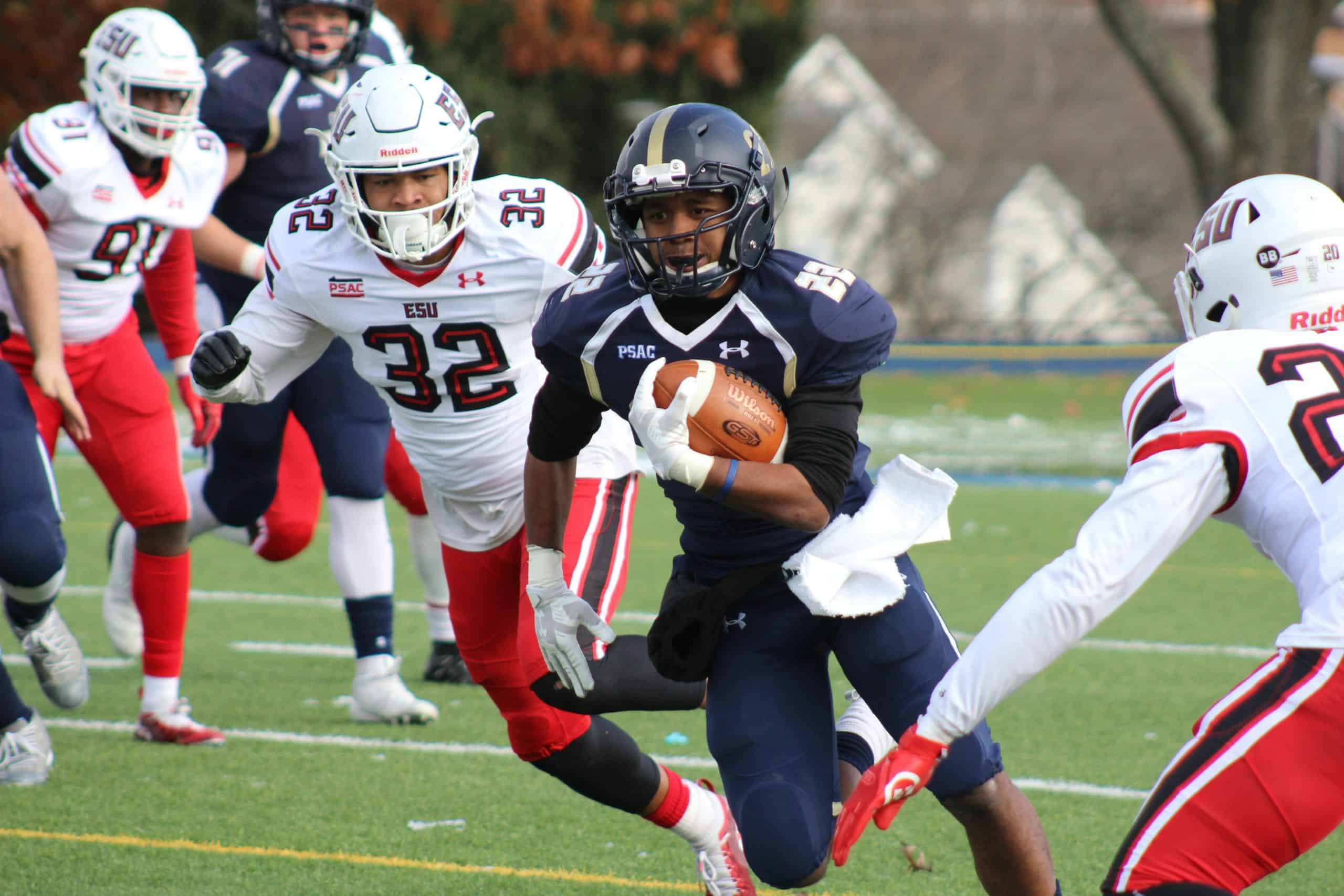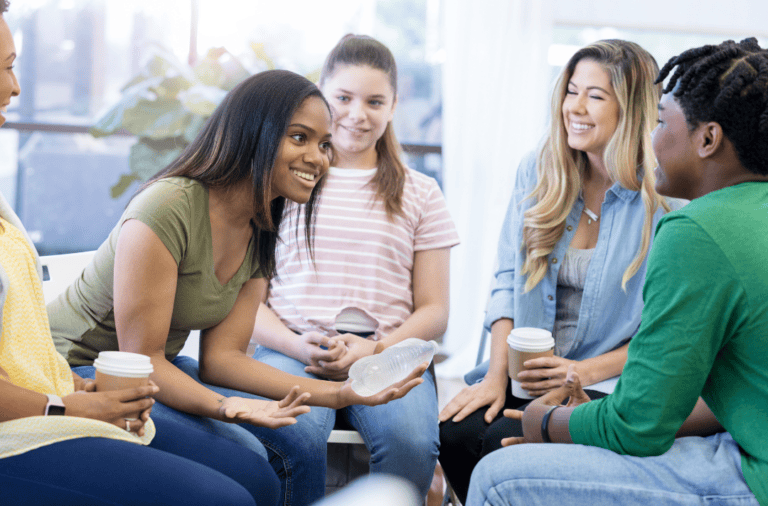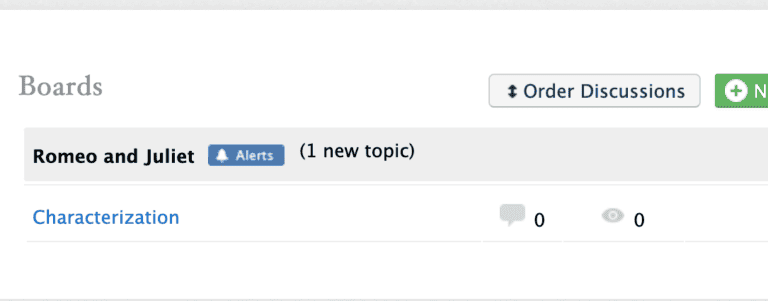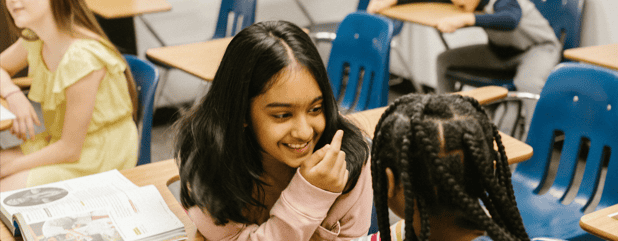Discussion as a Team Sport: Teaching Today’s Kids with a Skills-Based Approach
Adults everywhere lament kids’ conversational skills (or lack thereof) – in schools, restaurants, around family dinner tables. The causes are debatable and myriad: blame iPads, TikTok, parents, politics, COVID – the list goes on!
Here’s what’s not up for debate: today’s students struggle to communicate…especially live, in-person, and across any kind of difference. As teachers will tell you, this is true in second grade and senior year alike.
The good news? Discussion skills are teachable – but in today’s world, we have to teach them explicitly – and before kids need them most. At R.E.A.L.®, we’ve been proponents of a skills-based approach to discussion in school for a decade, but we often get asked what that kind of approach actually looks like. Here’s how we think about it.
Discussion is Not a Pick-Up Sport
Our theory: we can’t expect kids to learn how to have hard conversations without first teaching them how to have a conversation. It is only by explicitly teaching, learning, and practicing discussion skills in lower-stakes contexts – like, a class discussion about Macbeth or science lab results — that students build the relational and critical thinking skills they need to be able to show up for each other in moments of tension and disagreement.
In reality, schools rarely do this. Instead of breaking the art of discussion into teachable, learnable skills and holding students accountable for developing them over time, schools launch straight into “having discussions!” Effectively, we treat discussion like a pick-up sport: everyone shows up with a vague understanding of what to do, specific rules are subject to change according to context, and some kids — the tall ones! the extroverted ones! – have a big advantage over others. The bell rings, discussion ends, and we move on without much reflection – and when we do reflect, we’re usually focused on outcomes, not skills.
Effectively, we treat discussion like a pick-up sport: everyone shows up with a vague understanding of what to do, specific rules are subject to change according to context, and some kids — the tall ones! the extroverted ones! – have a big advantage over others.
R.E.A.L.® programs equip teachers to offer intentional instruction in discussion skills instead of approaching discussion as a “pick-up sport.” Our programs extend from elementary to high school and are built to develop skills over time, the same way a child might learn, practice, and master a sport. Here’s a peek into what that looks like.
Lower School: Teach Discrete Discussion Skills
In PE, elementary years are devoted to learning the individual skills athletes need to play a game. Children learn how to shoot, dribble, and pass – and practice those things through specifically designed drills (Shuttles! P-I-G! Obstacle Courses!). We approach discussion the same way.
In R.E.A.L.® Basics, R.E.A.L.® Discussion’s elementary school program, teachers teach students the four essential discussion skills: Relate, Excerpt, Ask, and Listen. We train teachers to embed skills-based lessons in different places throughout the school day – much the way a little league coach might plan skills-focused “drills” – so students can practice asking clarification questions in Morning Meeting, or relating to each other in Math Group Work, or excerpting during Reading Circle.
We train teachers to embed skills-based lessons in different places throughout the school day – much the way a little league coach might plan skills-focused “drills” – so students can practice asking clarification questions in Morning Meeting, or relating to each other in Math Group Work, or excerpting during Reading Circle.
R.E.A.L.® Basics students have a workbook in which they document their discussion work across content areas throughout an entire year. This helps kids see their skills add up over time – and also visualize their versatility! For example, these Listening and Reflection pages might be filled up with notes from science and social studies. Students take well-deserved pride in their R.E.A.L.® Books.
We developed this approach with an elementary school leader who believed that today’s students need discussion instruction that is as explicit and rigorous as common approaches to literacy and math – and not just relegated to a component of SEL. She knew students do not bring these “off-screen” social skills into school – that they are key to success in all areas of school life.
Middle School: Let’s Use R.E.A.L.® Skills To Scrimmage!
Come middle school, it’s time to learn the rules of the game and start scrimmaging. Just as a seventh grade basketball team might talk about the decisions you make when you get the ball – When should I pass? When should I shoot? When should I dribble? When do I get to make a choice and when is there a rule by which I have to abide? – R.E.A.L.® Discussion middle school programs equip students to start making intentional choices about when and how to use their R.E.A.L.® skills. Teachers transition into a coaching role, offering skills-based feedback at every turn.
The Rules of the Game are R.E.A.L.® routines, some teacher-facilitated (such as preparation techniques, goal-setting, post-discussion debrief conversations) and some student-led (pass-off system, note-taking rituals, non-verbal communication cues, reflection noms, end-of-day shout-outs). We’ve designed these routines in accordance with leading-edge education research to make each discussion as inclusive, rigorous, and pro-social as possible.
In middle school, students move from completing a workbook to building a Discussion Portfolio: a printed book in which they document a full year’s worth of discussion work. Like the R.E.A.L.® Basics workbooks, these portfolios span content units and make both growth and transferability visible to students. But during a time when many kids also start communicating more and more on-screen, there’s another benefit: R.E.A.L.® Discussion remains screen-free. This encourages deeper learning, better attention, and evidence-based assessment by teachers.
Scrimmages are meant to be low-stakes: a time to practice and get feedback. But it takes a well-trained, attentive coach to be able offer clear, specific, and confidence-building feedback to a team. In the R.E.A.L.® system, we prepare middle school teachers to do exactly that, empowering them with language and tools to replace who-talked-how-many-times and I-wish-I-heard-your-voice-more-often! with precise, growth-oriented, and evidence-based reflections.
Scrimmages are meant to be low-stakes: a time to practice and get feedback. But it takes a well-trained, attentive coach to be able offer clear, specific, and confidence-building feedback to a team. In the R.E.A.L.® system, we prepare middle school teachers to do exactly that.
High School: It’s Game Time – and R.E.A.L.® Discussions are a TEAM sport!
In High School, it’s game time – and it’s also the moment to learn, practice, and reflect on what goes into great discussion performance, both individually and as a group. In many schools, ninth grade is a big intake year where students from a variety of backgrounds come together, so the first thing R.E.A.L.® Classic does is give kids a common language and set of routines that they will use across high school.
In high school, the skills and routines “level up” significantly from middle school – for example, relating becomes more rigorous, holding students accountable not just for agreeing or disagreeing but also compromising and synthesizing – but the bigger leap is helping ninth and tenth graders realize that discussion is not only about “getting your voice in.” R.E.A.L.® teaches kids that discussion is not just about being heard; it’s also about listening, observing, facilitating, and tracking the dynamics of a conversation.
How do we help Gen-Zers zoom out beyond their own experience in discussion? We offer group-level feedback that teachers say is the key to “teaching students that discussion is a team sport.” The R.E.A.L.® Portfolio-Survey-Dashboard system asks students to complete a survey after every three discussions, and those results populate a teacher-facing dashboard. These surveys are a collection of quantitative and qualitative indicators that capture the group’s growth in discussion skills, belonging, and sense of purpose. Example survey items include gauging student responses to statements like: “I feel confident disagreeing;” “When I speak it feels like my classmates listen;” “I know I can get my voice in when I have something to say;” and “It feels safe for discussion to be student-, not teacher-, led.”
This data provides valuable feedback to the teacher while also reinforcing her role as a coach: it’s up to each educator to choose which data to share, emphasize, and debrief with students. What teachers choose to share looks different depending on their instructional goals, school culture, and student body, but here’s an example. Last year, a ninth-grade English teacher in Tennessee decided that learning to disagree without feeling “impolite” was a major goal for his students. Initially, less than 25% of students in his classroom felt confident disagreeing, a stat he shared with the students. The students found it concerning that less than half of them felt comfortable speaking up – and generated ideas as a team they could use to change the in-class vibe so, in the words of one student, “we can disagree with each other’s ideas – not whole entire identities.” After six discussions, nearly 70% of students reported feeling confident disagreeing with each other!
This data provides valuable feedback to the teacher while also reinforcing her role as a coach: it’s up to each educator to choose which data to share, emphasize, and debrief with students.
Ready to get in the game?
Equipped with the R.E.A.L.® skills they’ve developed over months (or even years!), teams of students learn to make decisions as just that: a team.
It’s easy to visualize how to teach athletic skills and habits from an early age. Thinking about teaching something as abstract as discussion, though, can be a little trickier.
It needn’t be. At R.E.A.L.®, we’ve done the work and applied the research, and we’ve created a multi-age system that enables teachers across schools, subject areas, and grade levels to take a skills-based approach to discussion.
We know this work isn’t just about helping students check a box for their “discussion participation” grade – it’s about endowing kids with the skills they need to share their voices, make space for other perspectives, and disagree thoughtfully and respectfully. When they’re fully prepared and ready to get in the game, the result is incredible – and we can’t wait to see the impact they make on the world.
Want to learn more about R.E.A.L.®’s skills-based approach to discussion? We’d love to chat. Reach out to our team today to get started!






